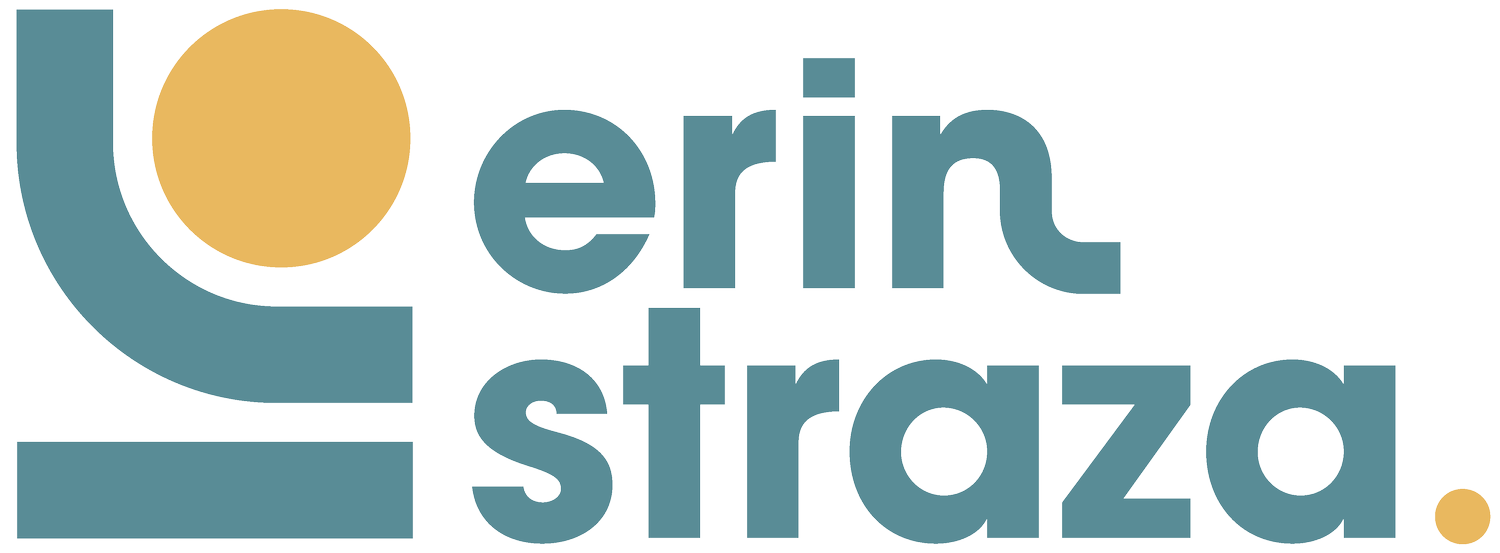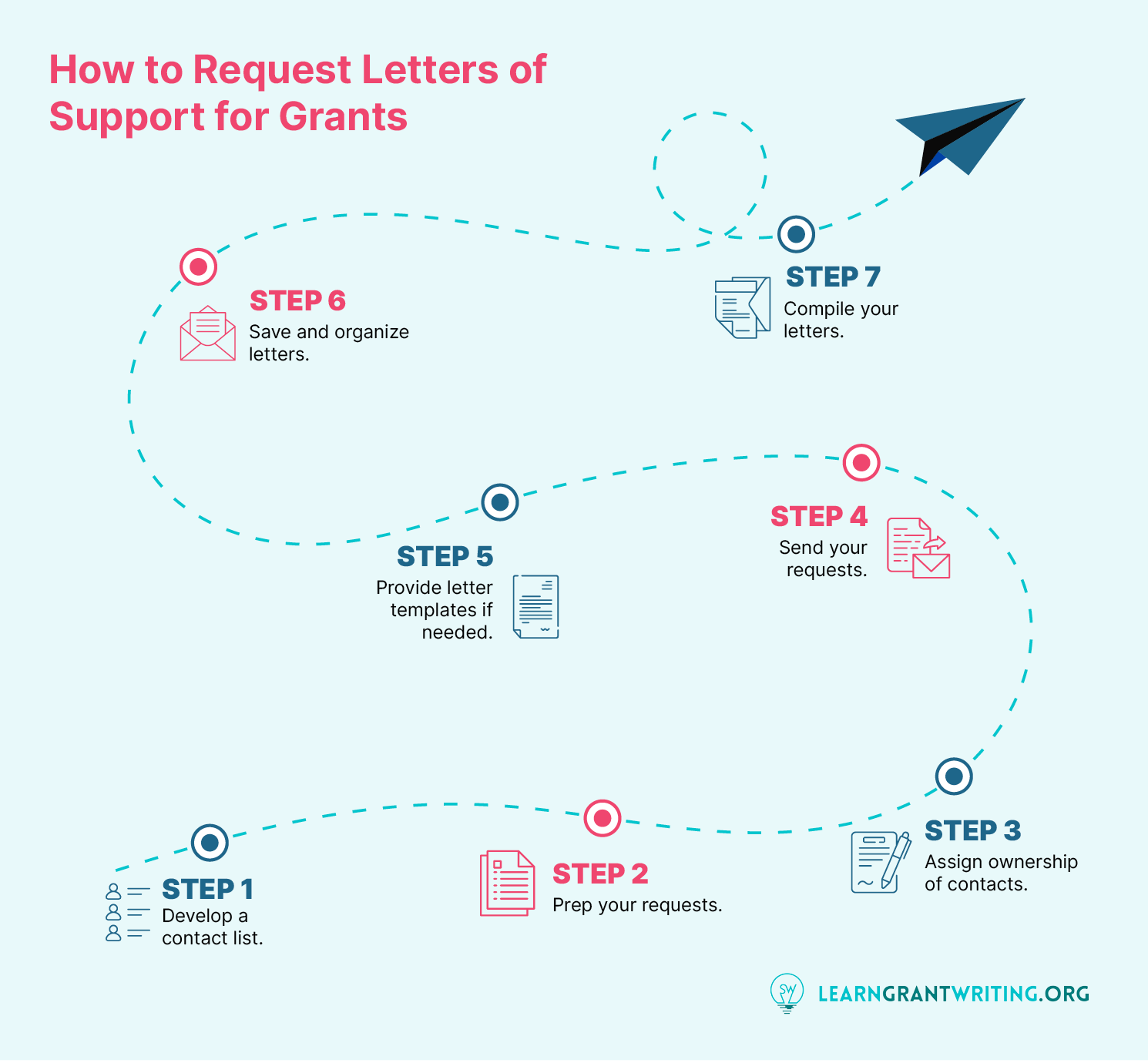guest post // Letters of Support: Who to Ask, When, and Why It Matters
By Meredith Noble, Learn Grant Writing
Letters of support may seem like a small piece of the grant application puzzle, but they pack a powerful punch that can elevate your grant proposal from good to exceptional. These letters are endorsements of your project’s credibility, making it irresistible to funders.
But who should you ask for these letters? When is the right time to request them? And why do these factors hold such weight in the grant application process?
Let’s answer your top questions about letters of support and unpack how you can make them work for your next proposal.
Who to Ask for a Letter of Support
Imagine you’re looking for a new restaurant to try, and two new eateries in town pique your interest. One comes highly recommended by other community members, while the other has glowing reviews from top-rated chefs. Which would you visit?
Most of us would choose the chef-recommended restaurant because the chefs’ qualifications lend credibility to their input. The same is true when writing a grant proposal—authorship matters for letters of support!
When deciding who to ask, think about whose perspectives reflect favorably on your organization and will carry weight with the funder. This could include:
Community leaders and influential stakeholders: Local government officials, school principals, or faith-based leaders can speak to the community's needs and how your project addresses them.
Partner organizations: Nonprofits or agencies you've collaborated with can attest to your reliability and the connection between your missions.
Beneficiaries: Individuals who have benefited from your programs have perspectives that are critical to telling your nonprofit’s story because they can provide personal testimonials about your impact.
Subject matter experts: Professionals in your field can validate the efficacy and necessity of your approach.
Aim to build a contact list of 15-20 individuals or organizations that might be willing to provide a letter. This can help you secure letters from broad perspectives for a more robust proposal.
When to Request Letters of Support
By the time you’re ready to request letters of support, you’ll have already found a grant, hosted a kick-off meeting, and written the grant narrative. However, your grant application has a deadline, which means your letters of support do, too.
The best time to ask for a letter of support is well before you’re up against that deadline. Giving your letter writers a generous heads-up shows respect for their time and boosts your chances of getting a thoughtful response.
Also, make sure you provide all the details the letter writer needs to easily fulfill your request. The easier you make it, the more likely they’ll be to write something meaningful. Here are some recommendations:
Provide context: Share details about the grant, your project goals, and why this letter of support matters.
Set clear deadlines: Let them know when you need the letter and provide reminders as the date approaches. 10-14 calendar days is usually plenty of time for people to review your request and write a letter.
Offer assistance: While pre-written or “ghost” letters won’t be as meaningful or authentic, providing a letter template or brief bullet points to guide their writing can make the process easier.
Browse the best grant writing resources to find tools that organize your requests, like a spreadsheet that tracks who you’ve asked, when you made the request, and whether you’ve received the letter. These tools make it easy to stay on top of your requests and ensure you receive your letters in plenty of time.
How to Make the Ask
Knowing who and when to ask for letters of support is important for the preparation phase. But once you have that down, it’s time to actually make the ask!
Following a standardized system will keep this process smooth, predictable, and stress-free. Learn Grant Writing’s guide to letters of support provides this step-by-step process:
Develop a contact list. Brainstorm a list of people who could write strong letters of support for your grant application. Include their names, contact information, and connection to your work.
Prep your requests. Develop a request template to send out to each of your contacts. This should include an overview of your organization, the grant you’re applying for, your proposed project, and clear instructions for the letter writer. Consider A/B testing your requests to see which ones are most effective (and to know what to change in the future).
Assign ownership of contacts. Decide who will request which letters, matching members of your team to letter writers who have personal or professional relationships with them. Provide instructions for your team members on how to request letters (i.e., making a phone call, sending an email, etc.).
Send your requests. Have team members track who they’ve asked for letters of support and when they officially made the request.
Provide letter templates if needed. As your letter writers respond to your requests, some may ask for a pre-written letter they can sign. Prepare a template letter with special emphasis on areas needing their personalization.
Save and organize your letters. As you receive letters of support, save them in a centralized folder and track that you’ve received them.
Compile your letters. Consolidate letters into one document so they can easily be attached to your grant proposal. Add a cover sheet that serves as a table of contents, listing all of the organizations that provided letters.
Keep in mind that the individuals and organizations you’re asking should already support your mission and work. Leaning into that shared love for your cause will be the best way to make a compelling request that yields strong letters.
Letters of support serve many purposes. Notably, they act as social proof, showing that others believe in what you’re doing. They can also strengthen your connection with supporters by asking key partners to reflect on their appreciation for your work.
Start early, offer clarity, and give your letter writers the tools to write something that truly resonates. If you can line up powerful and authentic letters of support, your proposal has a much better shot at securing much-needed funding for your organization!
This guest post was written by Meredith Noble.
Meredith Noble is the co-founder of Learn Grant Writing, an online membership for those building their careers in grant writing. Her book, How to Write a Grant: Become a Grant Writing Unicorn, is a bestseller for nonprofit fundraising and grants. Her expertise has been featured in NASDAQ, Forbes, Fast Company, Business Insider, and other top publications. She has secured over $45 million in grant funding, and her students have secured over $627 million - a number that grows daily. If Meredith's not biking or skiing in Alaska, she can be found curled around a steaming cup of green tea and a good book.
Ready for more? Here are two ways Erin can help you make your mission irresistible to donors:
1. Connect with me or follow me on LinkedIn.
It’s where I talk about donor strategy ideas like these. Join the convo!
2. Work with me.
Over 12 months, I guide NP teams to fund their mission with effective, frenzy-free donor engagement strategies. ✴️ Donors fund irresistible missions… is yours? Let’s get started! Schedule your 15-minute Change Chat here and share about your nonprofit and how you’d like to improve your donor strategy.


